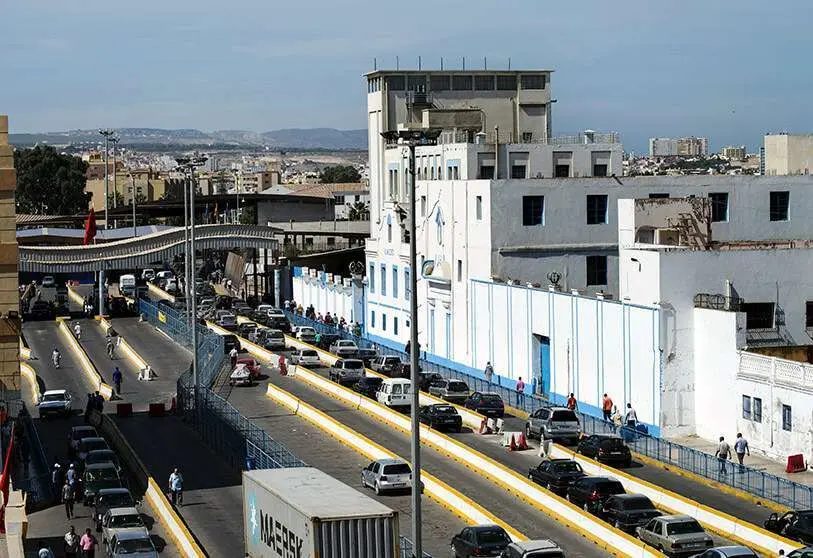Pedro Sánchez se ciñe a la hoja de ruta con Marruecos: habrá aduanas

The working meeting between Spain and Morocco on border issues coincided with the appearance of Prime Minister Pedro Sánchez before the Congress of Deputies, during which he addressed relations with Morocco.
The Ministry of the Interior, the main ministry responsible for the meeting held in Madrid, has not made any official statement on the conclusions of the working meeting, which the opposition political groups and several media have interpreted as a failure in the negotiations between Spain and Morocco to set up a customs office in Ceuta and Melilla.
The different political groups that presented their positions to the president of the government during his appearance in Congress attacked the road map adopted in the joint declaration presented in Rabat in April. President Pedro Sánchez responded that the agreement reached between Spain and Morocco will set up customs offices in the two autonomous cities of Ceuta and Melilla.

As already reported by this newspaper, the meeting on 7 April, although it would include customs, would not address their implementation as the main topic of the four hours of work between the commissions. According to interior sources, it was unlikely that anything would be decided on customs in June. The Spanish-Moroccan working commission is, however, due to meet a second time in Rabat to continue the work begun.
According to Atalayar's sources, it is even more urgent for the Spanish and Moroccan authorities to define how and when the borders will be fully opened to enable Operation Crossing the Strait (OPE), also known as Marhaba, to function properly.
Customs could not begin to operate for several months, even years, because Ceuta still lacks the necessary infrastructure to regulate the passage of goods under the expeditionary regime, as agreed between the governments in April. There is already a customs post in the city of Melilla, which, with the corresponding number of customs agents, could begin operating before the one in Ceuta. Nevertheless, the meeting on 7 June did begin to raise some points and even make some 'significant progress', according to Interior Ministry sources consulted by ABC.

According to Pedro Sánchez's statements, the implementation of the customs posts is a measure of mutual benefit for both countries. In addition to the taxes collected from the regularisation of goods, the benefits of the customs crossing point are felt in the security of the autonomous cities and therefore of Spain and the European Union, as well as on the Moroccan side.
Police sources in the autonomous city of Melilla explained this to Atalayar, assuring that it is one of the reasons why Morocco has ordered its police forces to adopt a new policy of zero tolerance towards irregular trade, which before the pandemic was a driving force at the borders. According to these same police sources, the change on the part of their Moroccan counterparts on the other side of the fence is noticeable, and would be a guarantee of Moroccan willingness to participate in the establishment of customs posts.
From the migration perspective, a change has also been observed on the Moroccan side, which responds to the new stage of relations between the two countries. According to sources consulted by Atalayar, the Moroccan forces of order have prevented the appearance of settlements of sub-Saharans on the slopes of Mount Gurugú, which overlooks Melilla from the Moroccan side, which would have prevented new mass jumps over the fence.








